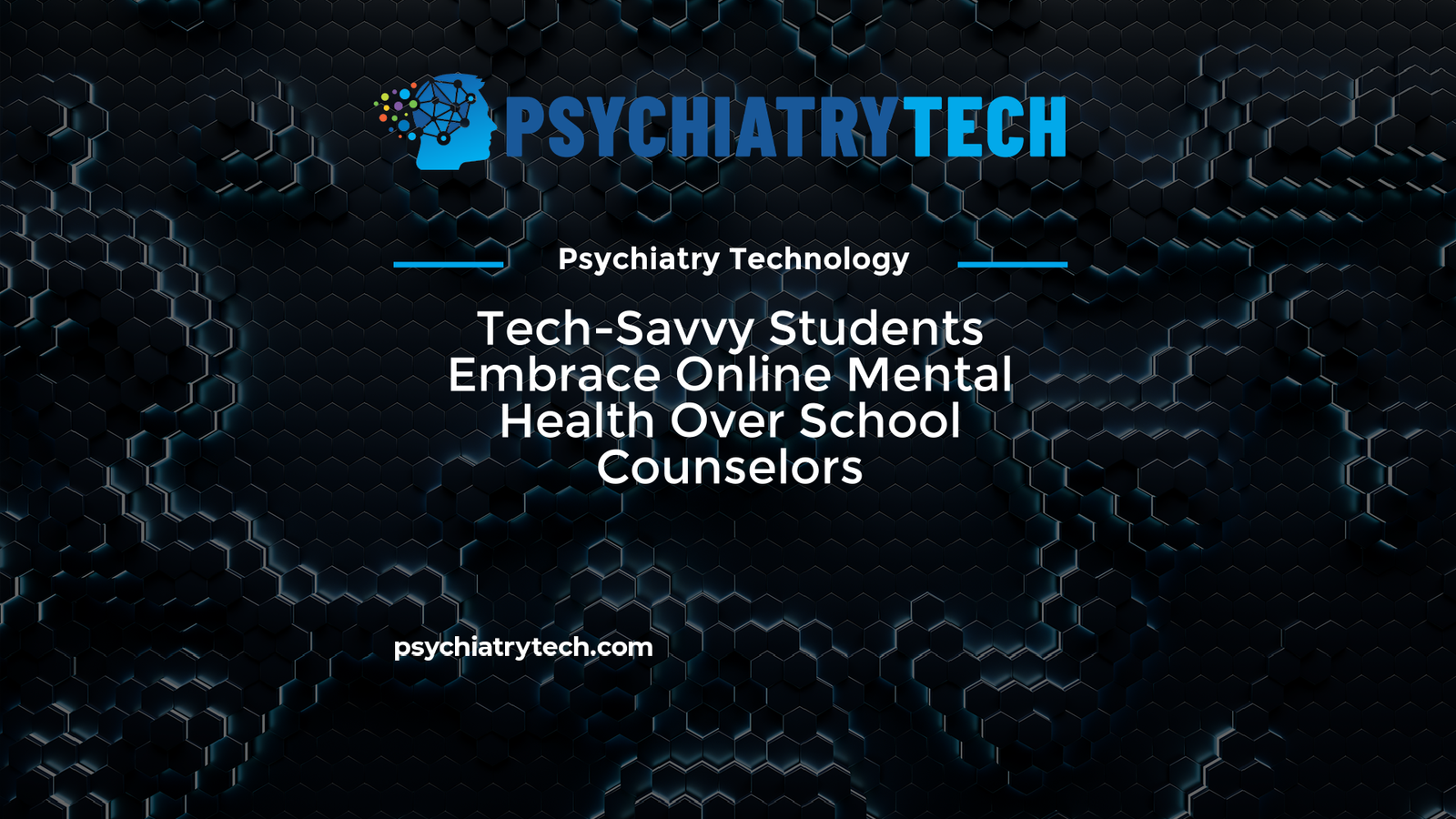Tech-Savvy Students Embrace Online Mental Health Over School Counselors
Online Mental Health Services and the Current Generation
In today’s digital age, technology has become a key aspect of our daily lives. Nowadays, young people are increasingly turning to online mental health services for support instead of school counselors.

Discover The World's MOST COMPREHENSIVE Mental Health Assessment Platform
Efficiently assess your patients for 80+ possible conditions with a single dynamic, intuitive mental health assessment. As low as $12 per patient per year.
According to a recent report by the American Psychological Association, today’s generation of young people are dubbed the ”iGen,” since they came of age in an era when smartphones and social media dominated. Thus, it is unsurprising that iGen students prefer using technology to traditional therapy:
- Online therapy is more accessible for students, especially those dealing with a hectic school schedule
- It is affordable and provides greater privacy
- It eliminates the awkwardness of face-to-face counseling sessions
- Using technology is familiar territory for many of today’s students, making it a natural choice for seeking mental health support
Furthermore, a study from Juniper Research revealed that the number of people who use telemedicine apps in mental health is expected to increase dramatically in the next couple of years, indicating the growing acceptance of online mental health services.
The Benefits of Online Mental Health Services
Online mental health services address a population of young students that suffers from anxiety and depression, conditions that affect around 32% of students. These apps are designed to accommodate students’ busy schedules, as young people often find it difficult to balance school, tests, and extracurricular activities, resulting in a lack of time to seek face-to-face counseling services. With online mental health services, students can receive proper counseling from the comfort of their homes while still maintaining their daily routines.
Another key factor that makes these apps more popular among students is that they are budget-friendly options. Going to a traditional counseling session can be expensive – an average of $75 per hour. However, most online mental health services can average $60 per month or less, making it more accessible to students who may not have the budget for traditional therapy sessions.
Technology-Based Alternatives
With more people becoming accustomed to smartphones and tablets, mobile apps such as Talkspace, BetterHelp, and 7 Cups have become popular alternatives to traditional therapy at schools. These apps enable young people to communicate with licensed therapists via chat, phone, or video messages and receive the care they require within their schedules and without facing the stigmatization that exists around mental health issues.
Apart from teletherapy, other forms of technology-based methods have also been developed to aid traditional therapy sessions. For instance, virtual reality (VR) technology is being used as treatment for conditions like PTSD. In a VR environment, patients can revisit and confront traumatic events in a controlled environment that will help decrease their anxiety triggers and increase self-esteem.
Conclusion
Online mental health services are an innovative and accessible solution for a generation that is inextricably linked to technology. These services provide a confidential and affordable means of support to young people who may be hesitant to approach traditional face-to-face counseling sessions.
As we look to the future, there’s no doubt that psychiatric technology will continue to advance and present more alternatives to traditional face-to-face counseling. With the promising developments arising, it’s exciting to see the growing acceptance of online mental health services and technology-based methods.

